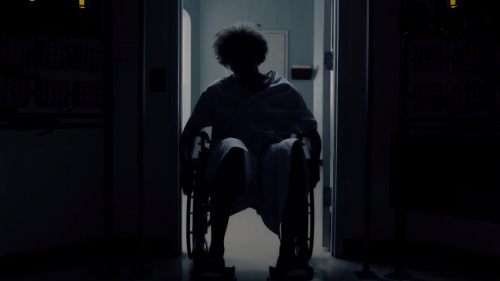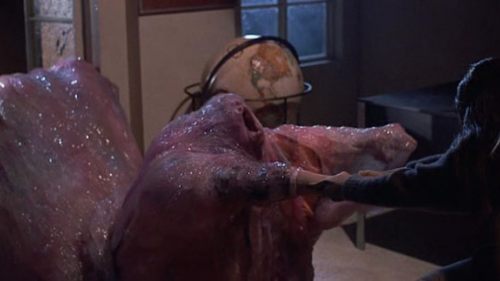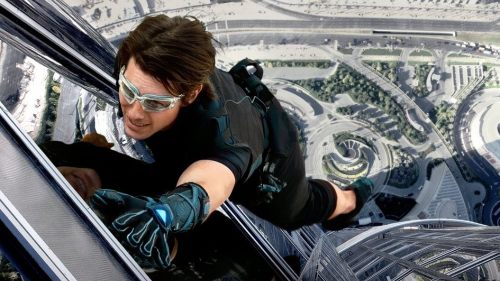Sunday Reads: Ridley Scott Vs. Death In THE COUNSELOR And THE MARTIAN
The past ten years of Ridley Scott’s CV reads like a master class in late-period filmmaker career planning. No stranger to biding his time and looking at the bigger picture - Scott perfected his technical mastery on commercials and short form work before making his feature film debut at age 40 - the director has in recent years curated a space for himself that has allowed him to remain not only bankable, but cutting edge and even daring. He’s one of maybe two or three living filmmakers with that kind of pull, and he’s maybe the only filmmaker in that group with that kind of drive. And between Prometheus and Alien: Covenant - two films that revisited and revitalized the iconic franchise he helped birth - he made two modern masterpieces that stand with the best work of his career. The Counselor (2013) and The Martian (2015) are both films are about how we, the only animal to comprehend its own death, face the phenomenon. Scott’s twin explorations of this theme play like an existential call-and-response, and make for one hell of a double feature.
The Counselor announces its message early and often: you deviate from the straight and narrow at your peril. If you wake up one day and decide to do the wrong thing, you will lock in a fate - for yourself and your world - that you won’t see coming and which you can’t possibly fathom. The eponymous Counselor (Michael Fassbender) is told this truth flatly and repeatedly by nearly everyone he encounters. But a “one time deal” offers him an enticing return on his investment, and whatever sticky financial mess he’s gotten into that colors this decision has already happened when we find him at the film’s beginning. In other words, the first time we see the Counselor, it’s already too late for him.
Scott’s preferred cut of the film is 138 minutes of a universe as cold and indifferent as space itself, reaching out to tear a good person to pieces because of a bad decision. Cormac McCarthy’s black, black script opens with a tender lovemaking scene between the Counselor and his love Laura (Penelope Cruz), naively shocking each other and themselves with “naughty” sexual banter. Scott opens this scene - opens the film - with a motorcycle courier buzzing in the distance outside the Counselor's window. That courier's actions will eventually doom nearly every character in the film, and his placement here makes the darkness that’s about to consume them all the more nightmarish. Their unfathomable fate is being sealed even as they tease one another to push each other’s (and our) tame boundaries in bed, and framing it with the agent of their fate casually cruising past their room is almost cruel. These are two people seemingly bereft of darkness, helpless prey who don’t know what’s waiting for them outside that room.
And as much as McCarthy and Scott insist that the film is a morality fable about the repercussions of one bad choice (or more accurately, one choice to be bad), this starts to feel like the real message of The Counselor: whatever’s coming to end you has probably been set in motion while you were lying in bed days, weeks, years ago, completely oblivious. It’s a film imploring us to understand that death is coming for everyone, and it does not discriminate. The innocent and the guilty alike will be devoured, and the only thing any of us can do is attempt to comprehend it.
That comprehension is the film’s through line, and the characters are split into two camps - those who understand the inevitability of death, and those who are about to. On the side of comprehension is the Counselor’s unsavory associate Westray (Brad Pitt), who gives colorful speeches about snuff films and cartel bloodshed with a jaded, seen-it-all tone. He pretends to understand the chaos of the world. But in Westray’s world the inexperienced Counselor IS an element of chaos, and when he does an unrelated favor for a former client (Rosie Perez), he unwittingly wanders into this delicate ecosystem and incurs a massive amount of collateral damage, and not even Westray can see it coming.
The Counselor’s other partner is Reiner (Javier Bardem) and he likes to think he knows this world, sharing his “wisdom” like a giddy, rookie 12-stepper eager to let friends in on all the new things they’ve learned. But it’s a naive, false wisdom and Reiner, like so many others, is caught unaware by his fate. A Mexican cartel head (Rubén Blades) seems to come closest to this great understanding of which everyone has been warning the Counselor. “The world in which you seek to undo the mistakes that you made is different from the world where the mistakes were made. You are now at the crossing. And you want to choose, but there is no choosing there. There's only accepting...You are the world you have created. And when you cease to exist, this world that you have created will also cease to exist. But for those with the understanding that they're living the last days of the world, death acquires a different meaning. The extinction of all reality is a concept no resignation can encompass,” he tells the Counselor, before hanging up to take a nap. From Blades’ bored Jefe, to Cruz’ Laura, each character feels like a different round of the human mind’s existential wrestling match with oblivion.
As that agent of oblivion, Cameron Diaz’ Malkina is cartoonishly rendered, but haven’t we since the beginning of storytelling tried to make sense of death by portraying it as one exaggerated anthropomorphism or another? Malkina is all appetite, and she terrifies everyone around her. She sizes them up like prey, and then she devours them all: the good, the bad, the naive and the evil. Everyone is going into the meat grinder, and at the close of the film that “understanding of the world you’re in” exalted by the characters does nothing to stay the darkness.

Wedged as they are between Alien pictures, it’s amusing to note that both The Counselor and The Martian present humanity as something alien. The former presents human nature itself as alien, an organism with a cold capacity for cruelty that we don’t want to own up to, so we call it evil and foreign. That’s not us. It’s an idea we reject so hard that the film itself was received coolly upon release. The latter presents the human alien by way of geography. 225 million kilometers from his own planet, astronaut Mark Watney (Matt Damon) is an alien organism on Mars, a planet that’s trying in every way possible to kill him. Mark’s survival depends on intelligence, patience, cooperation and compassion - all the better angels of our nature, and all the human traits that are MIA in The Counselor.
Thanks in part to The Counselor being unfairly dismissed upon release, no one seemed to notice that The Martian is in many ways a hopeful response to the existential despair of its predecessor. The Counselor’s message of unknowable oblivion delivered by an indifferent universe is as horrifyingly Lovecraftian as anything in the Alien films; The Martian tells us that in the face of death, we’re stronger together, and while death is always something with which to contend, life will always matter more.
Abandoned on Mars by a crew who thought him dead, Watney’s survival depends at first on his own intelligence: harvesting water, farming in his own excrement to grow food, talking himself through every problem he encounters. Watney’s scientist mind is his only hope of figuring out a tenable solution to his predicament; his humanity, humor and resolve are his only hope of being able to act on all those hypotheticals. Watney is intellectually and emotionally the pinnacle of human achievement. And when Earth sees evidence of his survival and the work he’s putting into it, the entire planet is moved to action.
“If your definition of a friend is someone who would die for you,” Westray tells the Counselor, “then you don’t have any friends.” The Martian’s Watney, believing himself to be left for dead, is buoyed - and in fact saved - by nothing less than everyone on Earth reaching through time and space to say: we care. Where the Counselor has no one to turn to in his time of need, Watney witnesses his co-workers surrender years of their own lives for a tiny chance to save his. Inspired by Mark’s resolve and resourcefulness, the human race rapidly moves past self-interest, past red tape, and past global politics, working together to beat back death, just this once.
Barely two years after its release, The Martian now feels as far away as Star Trek, an Obama-era daydream we once had the temerity to believe about ourselves. (We wanted to believe it so badly, people thought it was a true story.) But if The Counselor is the work of an artist despairing at the finality of death, The Martian feels like that artist choosing to see the good, and acknowledging that death is out there, but we needn’t succumb to despair. And in acknowledging and acting on our potential to be better, we are saved.

A version of this article appeared previously in the print edition of Birth.Movies.Death.



